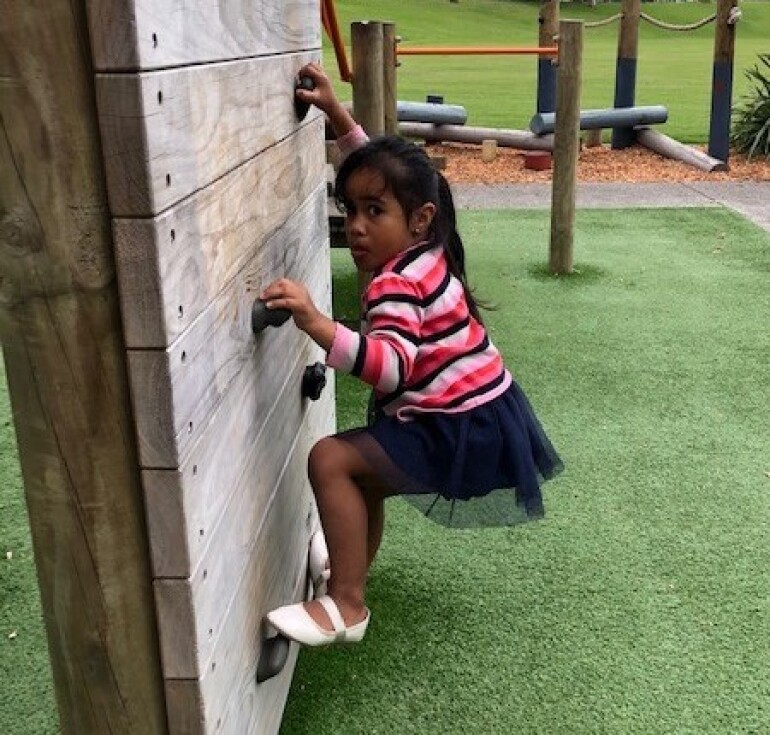News And Events

Physically Active Play
6 September 2024Physically active play engages gross motor skills; these are the movements we make with large muscles, like those in your legs, arms and torso. “Gross,” in this case, means “large,” and “motor” means “movement.” Walking and waving your arm are examples of gross movements.
For motor skills to develop, children/tamariki need plenty of time playing on the floor and outdoors to exercise both sides of their brain and body. Purposeful movements tend to develop from the head down. Babies/pēpi typically learn to first lift their heads while on their bellies. Then they learn to push up with their arms. Next, they usually learn to crawl using their arms and legs and eventually walk. Every child/tamaiti develops their own unique way to move around. Some babies/pēpi will crawl on all fours, others one-foot–one-knee, and some will move along on their bottoms (commonly known as ‘bottom-shuffling’).
As their big muscles develop, tamariki will progress from holding onto and walking around the furniture (cruising) to stooping, picking something up off the floor, and standing up again to explore it. These actions all continue to strengthen the big muscles in their legs, abdomen and back. Children are likely to spend much of their day exploring and practising movements as they play, and as their muscles get stronger and their brains continue to develop, the fine-tuning and number of gross motor skills grow. Gross motor skills continue to develop and get more complex throughout childhood and adolescence. For example, by the age of 6, most tamariki can skip if someone shows them how. This movement requires a complex combination of muscle strength, balance, coordination and timing.
Physically active play can help tamariki to:
- develop large muscles, strength and balance
- develop flexibility, rhythm and coordination including hand-eye coordination
- develop skills such as throwing, catching, hopping, skipping, climbing and balancing
- develop mathematical concepts such as long/short, big/small, wide/narrow
- develop awareness of space, such as over/under, in front/behind, on top/beneath, inside/outside
- learn their limits
- learn to cooperate and share
- learn about games and rules from their own and other cultures
- understand that physical activity is fun and can release tension.
Information from www.education.govt.nz and sportnz.org.nz


